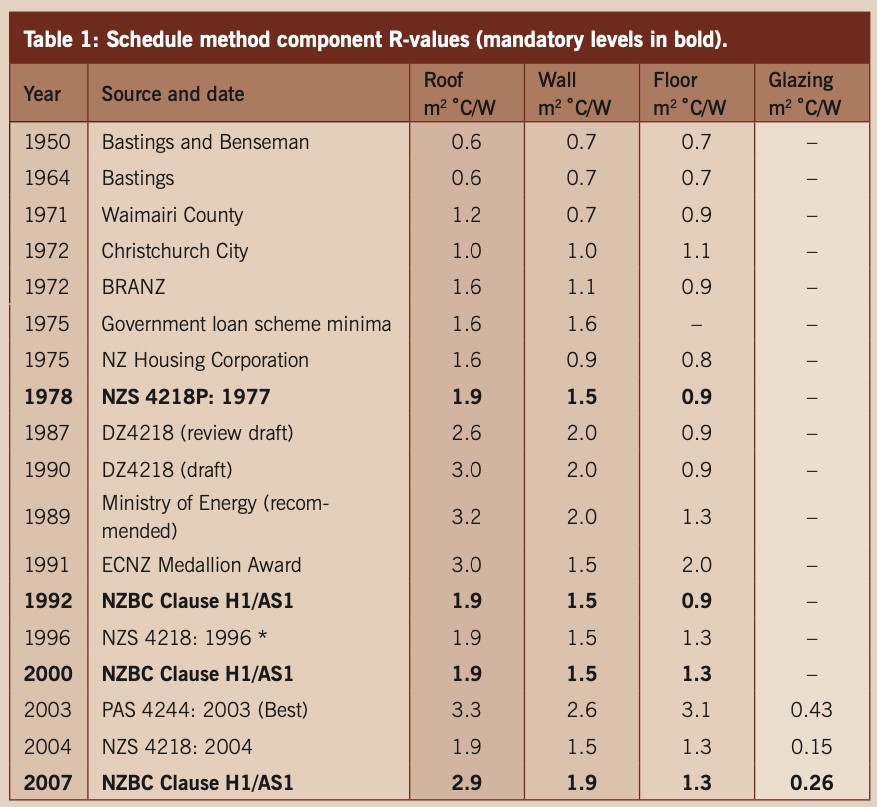Handle9: Design conditions for Auckland are typically a low of 5 degrees in a high performance building but it also depends on your internal target temperature. From memory the ASHRAE extreme low temperature is 1.8 dry bulb. That’s not very cold.
“Vested interests” are the supply chain. The reality of construction, as opposed to a fairy tale that everything can change over night, is that you can’t change the availability of building products instantly. You certainly can’t quickly change construction methods. The industry tried that in the mid 90s and it created the leaky homes crisis.
The minimum requirements are different from Southland to Northland, particularly for windows, so if builders are building to the same minimum requirements they aren’t complying.
the main difference between north and south was basically a layer of ceiling insulation, thats all. thats a common upgrade done here as its pretty cheap. so they where complying wit the rules, its just the rules sucked. hence the big change. nz is few generations behind everyone else.
the vested interest is people want to making money from housing. so its a case of lets make it look fancy as possible and skimp on everything else. the average length of home ownership in nz is now only 5 years. there is no ROI on anything because your not going to be living there. so its make up an excuse not to spend the money. "northlands warm so we don't need insulation in southland" kind of nonsense.
had that crap back in the 90's, they didn't want insulation but how many people would want a house with out it today?



